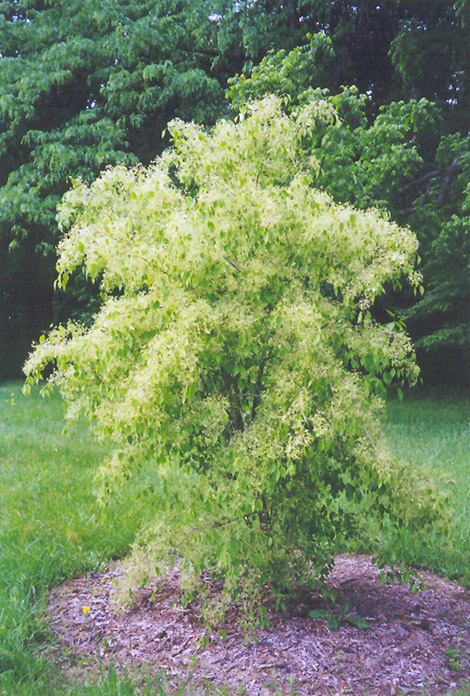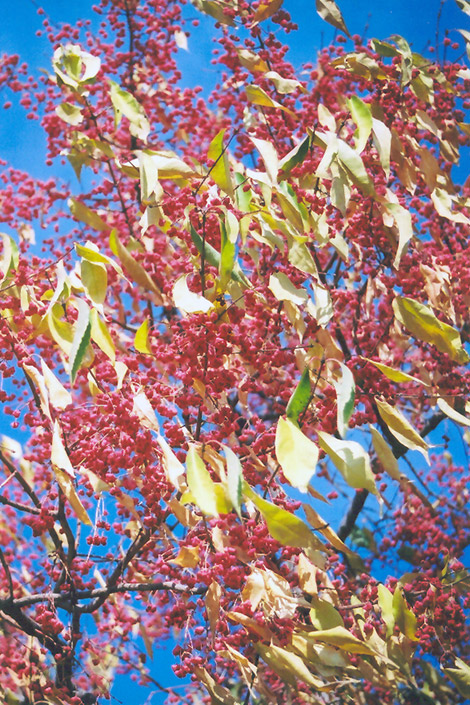Plant Finder
Height: 12 feet
Spread: 10 feet
Sunlight:
![]()
![]()
Hardiness Zone: 4
Other Names: Yeddo Euonymus, Chinese Spindle Tree
Description:
A fine small multistemmed tree with highly ornamental orange and pink seeds and reddish-purple fall color, good for small home landscape use; susceptible to scale insect troubles, monitor and treat as necessary
Ornamental Features
Maack's Spindle Tree has dark green deciduous foliage on a plant with an upright spreading habit of growth. The pointy leaves turn an outstanding brick red in the fall. It produces pink capsules from mid to late fall.
Landscape Attributes
Maack's Spindle Tree is a multi-stemmed deciduous shrub with an upright spreading habit of growth. Its relatively coarse texture can be used to stand it apart from other landscape plants with finer foliage.
This shrub will require occasional maintenance and upkeep, and is best pruned in late winter once the threat of extreme cold has passed. Gardeners should be aware of the following characteristic(s) that may warrant special consideration;
- Insects
Maack's Spindle Tree is recommended for the following landscape applications;
- Accent
- Mass Planting
- Hedges/Screening
Planting & Growing
Maack's Spindle Tree will grow to be about 12 feet tall at maturity, with a spread of 10 feet. It tends to be a little leggy, with a typical clearance of 2 feet from the ground, and is suitable for planting under power lines. It grows at a medium rate, and under ideal conditions can be expected to live for approximately 30 years.
This shrub does best in full sun to partial shade. It is very adaptable to both dry and moist locations, and should do just fine under average home landscape conditions. It may require supplemental watering during periods of drought or extended heat. It is not particular as to soil type or pH. It is highly tolerant of urban pollution and will even thrive in inner city environments. This species is not originally from North America.


